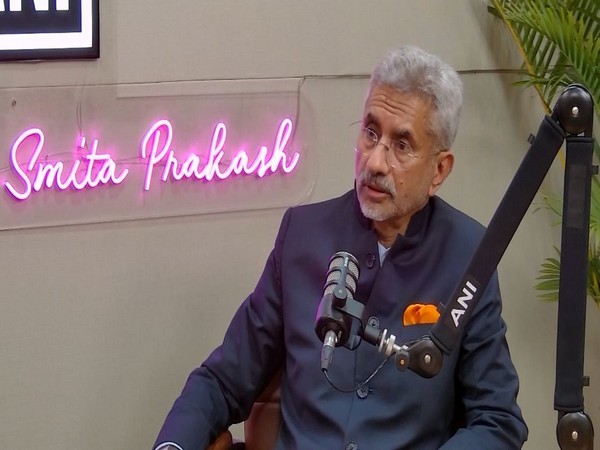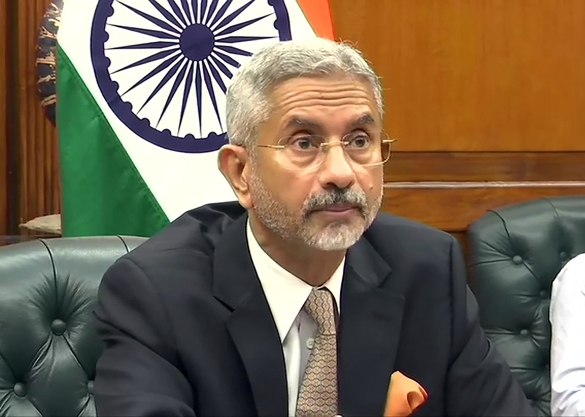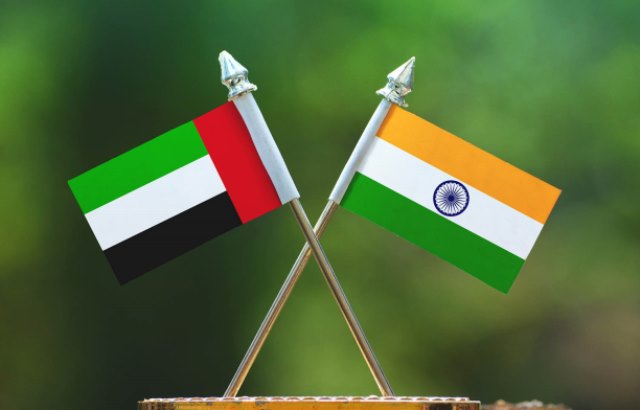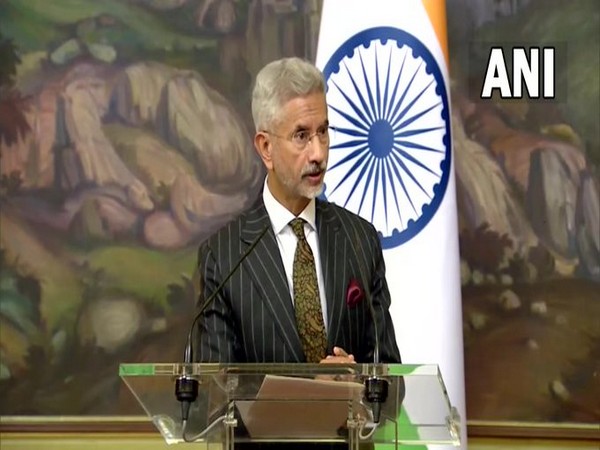Noting that he belongs to a family of bureaucrats and that the political opportunity as a union minister came as a bolt from the blue in 2019, External Affairs Minister S Jaishankar on Tuesday said that his father Dr K Subrahmanyam was removed as Secretary, Defence Production, by former Prime Minister Indira Gandhi soon after she came back to power in 1980 and he was superseded during the Rajiv Gandhi period with someone junior to him becoming the Cabinet Secretary.
In an interview with ANI, Jaishankar talked about his journey from foreign service to politics and said he had always aspired to be the best officer and get elevated to the post of Foreign Secretary.
Jaishankar was Foreign Secretary from January 2015 to January 2018 and earlier served in key ambassadorial positions including in China and the United States. His father K Subrahmanyam, who passed away in 2011, is regarded as one of India’s most prominent national security strategists.
“I wanted to be the best foreign service officer. And to my mind, the definition of the best that you could do was to end up as a foreign secretary. In our household, there was also, I won’t call it pressure, but we were all conscious of the fact that my father, who was a bureaucrat, had become a Secretary but he was removed from his secretaryship. He became, at that time, probably the youngest Secretary in the Janata government in 1979,” Jaishankar said.
“In 1980, he was Secretary, Defence Production. In 1980 when Indira Gandhi was re-elected, he was the first Secretary that she removed. And he was the most knowledgeable person everybody would say on defence,” he added.
Jaishankar said his father was also a very upright person, “may be that caused the problem, I don’t know”.
“But the fact was that as a person he saw his own career in bureaucracy, actually kind of stalled. And after that, he never became a Secretary again. He was superseded during the Rajiv Gandhi period for somebody junior to him who became a cabinet secretary. It was something he felt…we rarely spoke about it. So he was very, very proud when my elder brother became secretary,” said Dr Jaishankar.
Jaishankar said he became a Secretary to the government after his father passed away.
“He passed away in 2011, at that time, I had got what you would call Grade 1 which is like a secretary ….like an ambassador. I did not become secretary, I became that after he passed away. For us, at that time the goal was to become secretary. As I said I had achieved that goal. In 2018, I was kind of very happy to walk away into the sunset…but, I ended up walking not into the sunset but into Tata Sons! I was contributing my fair bit there. I liked them, I think they liked me. Then completely as a bolt out of the blue, the political opportunity came. Now the political opportunity for me was something I needed to think about because I was simply not prepared for it….So I did reflect on it briefly…,” said Jaishankar when he was asked about his journey from a bureaucrat to a cabinet minister.
Reflecting on the phone call from the Prime Minister inviting him to be part of the 2019 Narendra Modi-led cabinet, Jaishankar said that it did come as a surprise. “It had not crossed my mind, I don’t think it had crossed the mind of anybody else in my circle,” he said referring to his induction in the union cabinet.
“Once I entered, I must say in all honesty I myself was very unsure. I had watched politicians all my life. One of the things you get to do in foreign service by the way is you actually perhaps much more than the other services is, you see politicians up close because you see them abroad, you are kind of working with them closely, counselling them. So, it’s one thing to watch but to actually join politics, to become a cabinet member, to stand for Rajya Sabha, you know when I was selected, I was not even a member of Parliament. So each of these things happened one by one. I slid into it, sometimes without knowing it. You learn by watching others,” he added.
Jaishankar, who joined the Indian Foreign Service in 1977, said he looks “very carefully at what people are doing both in my party and other parties”. He is a BJP member in Rajya Sabha from Gujarat.
Answering a query about his time as cabinet minister, he said it has been very, very interesting four years
“I don’t think it’s so much a question of winning friends. Yes, it does help when you are a diplomat, in a sense I was trained I would say to get along, to get the most out of situations. Some of it also, different people are made in different ways. You would see, I very rarely get into anything personal with people, even when I am provoked at times. I think people are just made in different ways. I would say this, it will be four years this summer. It has been a very, very interesting four years. When I look at these four years, for me actually it’s been four years of very intense learning, going to a state which I had really very little knowledge of,” said Jaishankar.
Jaishankar said when he became a minister he had a choice to join a political party or not.
“One, this government, this cabinet is very much a team cabinet. You don’t do your own thing out here. You may have a background, you may come from a stream, but this very idea that you will do your domain as you say we are technocrats. I don’t think it gels with what this cabinet is. Secondly, when I was selected as a minister, I was not a Member of Parliament, I was not a member of a political party either. I had the choice whether I would join a political party or not. There was no compulsion on it, nobody brought up that subject. It was something that was left to me. I joined because, one, when you are joining a team, you join it wholeheartedly. That is where you give your best performance and you get the best support.”
“And secondly, I really reflected on what is the meaning of actually joining a political party. It’s not the decision I took lightly. I am someone who’s studied and analyzed politics all his life. It was something for me of great importance. So I joined because I genuinely believe today that this is a party which captures the sentiments and interests and aspirations of India the best. And I get into other issues because again one of the differences moving from bureaucracy, from a department or a service into politics, you learn so much more when you are a member of the cabinet,” he added.
He said there is a different level of exposure as a union minister compared to that in bureaucracy.
“Your exposure, every cabinet meeting…let’s say there are 10 items, it could be on agriculture, it could be on infrastructure. But you get a cabinet note, you read the note, you are interested, you will study a little bit more. So your interest broadens. When your interests broaden, and you go out there and speak to people, it will show.”
Asked if there was any difference in how Dr Jaishankar thought and operated as a foreign service officer and as a minister and a politician, he said it was some challenge for him personally.
“In a way, it’s like different lives. You got to understand the challenge that it was for me personally because I am from a bureaucrat’s family. My father was a bureaucrat. I have an elder brother who is a bureaucrat, my grandfather was a bureaucrat, and uncles who were there. So our world, if I can put it to you this way, was very very bureaucratic. Our goals, our dreams were bureaucratic.”
Jaishankar said every major issue has some political angle which a minister will tend to see much faster than a bureaucrat
“It’s a different world, a different responsibility. I put it to people like this. I may have sat 40 years in the Parliament gallery. It’s not the same as being on the Parliament floor. I used to sometimes… Sushma Swaraj was my Minister. As Foreign Secretary, we used to talk a lot. …I had the confidence that I have a minister and a Prime Minister above me who at the end of the day shoulder that political responsibility,” he said.
“Now, come May 2019, that political responsibility is mine. It is a completely different field. As a Minister, you have to look at it not departmentally, there may be something which is, to give you an example, wheat export to some country. As a secretary I would say that a country’s relationship is very important. But as a Minister, I have to say what my own wheat prices look like, what are the domestic concerns out there? Who else do we need to talk to? Every issue, every major issue has some political angle which a Minister will tend to see much faster than a bureaucrat, however good that bureaucrat might be,” said Dr Jaishankar in a wide-ranging podcast interview with ANI’s Editor Smita Prakash.
Asked if it was kind of challenging, he said, “yes, absolutely”. (ANI)
Read More:http://13.232.95.176/



